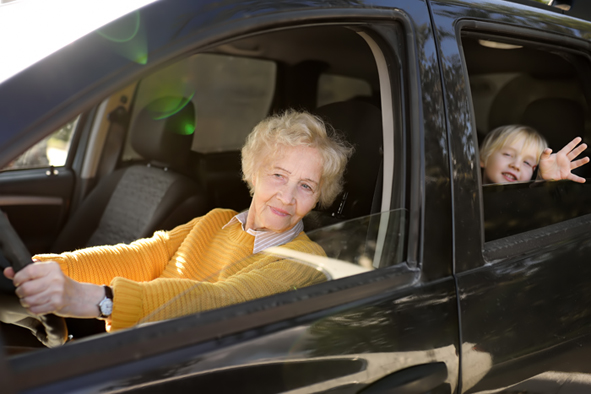
What’s the age when a senior citizen should stop driving? Obviously, that’s a subjective question. I’ve known a couple of senior men in their early 90’s who still drive. Perhaps they shouldn’t be, but they are.
I swore I’d never be one of those people who quit driving as long as I was cognitively present and could pass the test. No one was going to curtail my independence in any way!
Yet here I am. I got rid of my car last year and drive very little, never on the freeway and never out of town.
A role reversal
It used to be that we were the retired, independent people caring for children and others in need. Sometimes our patience was strained under this caregiving and sometimes frustration would lead to emotions spilling over, upsetting others, hopefully for only a very short time.
Now we’re the dependent ones, relying on our kids or the care of others to get us from here to there, all in one piece. Now it’s the younger ones who make that run to Costco for TP or the pharmacy for a medicine or give us a lift to our doctor’s appointment.
This is our new reality, and sometimes it’s danged uncomfortable. Fleeting freedom can feel like yet another punishment for getting old.
Driving
Many of us should not be driving once we’ve noticed a decline in our response time, as in my case, or because we’re just plain scared, also as in my case. I used to be a great driver, and now I’m not. I can get panicked quite easily when passing large trucks or when the road’s curve seems to go on forever.
Whether we should or shouldn’t still be driving isn’t always apparent by successfully passing a Department of Motor Vehicles test. I don’t have kids who rode around with me in recent years and who were able to notice my decline in depth perception, night-driving skills, and response time. None of my friends said anything, yet I just knew my safe driving skills had expired.
Fortunate for me, I’m technologically inclined and love services like Uber and Lift. For those seniors who aren’t plugged in, however, relying on the kindness of friends or rides from our children or public transportation is the best of what is available.
While we’re learning now to identify when it’s time to quit driving, our family or close friends are Googling the best way to propose a conversation about the curtailment of driving without hurting our feelings. It never feels good to have a decline in skills noticed by others.
Acceptance
So, what can we do when the shift from caregiver to care receiver or driver to passenger occurs? There’s no pill or class or healing that can solve the problem of aging.
It’s up to everyone to accept these changes. Everyone’s solutions are different, but acceptance of the problem is the first step.
Take that first step and help those around you, givers and receivers alike, take that step too!

